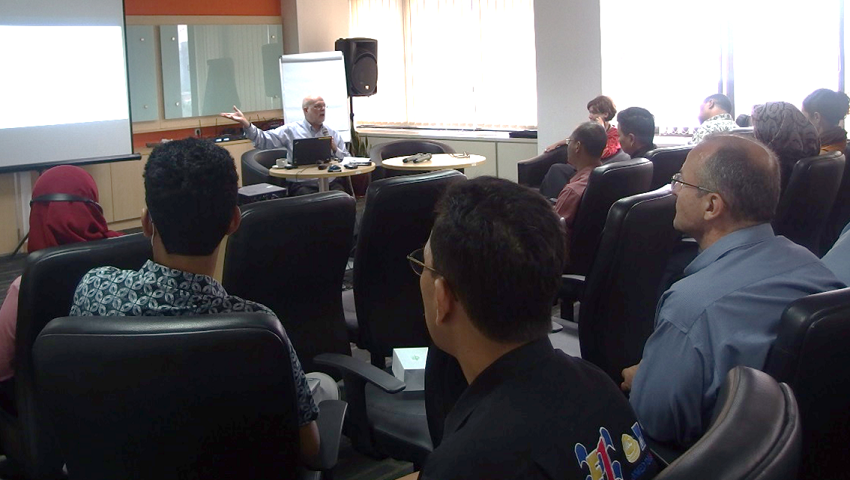Severity: 8192
Message: Methods with the same name as their class will not be constructors in a future version of PHP; MY_Lang has a deprecated constructor
Filename: core/MY_Lang.php
Line Number: 16

by Sharief Natanagara
During his visit to Jakarta to attend the Data Revolution Conference, KSI was fortunate to have Dr. Luis A. Crouch, RTI’s International Development Group’s Chief Technical Officer, share his insights on using data at a knowledge-sharing event entitled, “The Financial Benefits of Using Data for the Sustainable Development Goals”, a paper co-authored with Julio Rank.
Dr. Crouch began by saying, “It is not just about knowing the cost of information, but also knowing the value of information.” Using a number of mathematical models, he shared his modelling results using data from education in Africa, comparing the impact/value of standard practices (‘business as usual’) to best practices. An indicator he highlighted was the net revenue difference of the value of information between the two practices. Dr. Crouch estimated a substantial difference in impact; his presentation pointed out slightly more than $850 million that could be gained if governments across the world used better data to identify best practices.
Dr. Crouch said, “In the end, I do not know whether I have estimated the value of information, or the value of the capacity to act on the information? I do not know how to distinguish between a government that has good information and does not act on it, versus a government that acts on good information.” This is a key distinction and one that gets to the heart of the political economy of knowledge, which KSI deals with all the time.
KSI’s Team Leader, Petrarca Karetji, said the presentation was very relevant to KSI and that one of the things KSI would be looking at is, “How do you actually look at the benefits of improved policy input?” This is a good argument that can be used by the Government and further investigated by policy research institutions. He added that KSI and the Government had been discussing the increased complexity of problems facing Indonesia as a middle-income country, the use of good and strong data, and systems that support the production of the sort of policies needed in Indonesia.
Dr. Crouch said he believed that trying this at a local level and conducting pilots in Indonesia was a great idea. Information on how different localities are performing would be helpful, only if that information was uniform, “because that is the only way you can compare”. He added that it would be interesting to do a pilot study from the grassroots up, gathering spontaneous information on a service, trying to quantify how much value that information had as compared to the standardised top-down information that would come from a centralised approach. This would be a fascinating question and an interesting research project.
Topic : financial benefits, using data, sdg